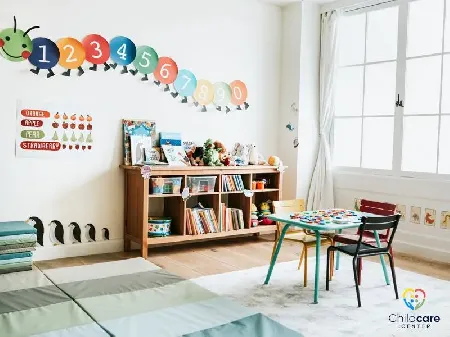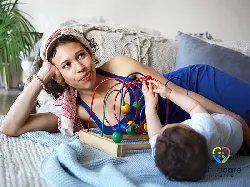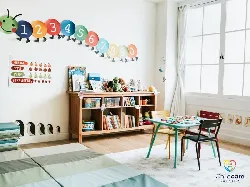How Do I Find and Choose Quality Child Care?

The daycare center is the most important aspect of raising a kid. Depending on the daycare center, there will be a huge difference on how the kids grow. There are things you need to know about finding a daycare centre for your child that will cater to your child's needs. Finding the best child care in your local area is one of the more daunting and time-consuming tasks a parent faces. You can't make a decision without knowing all of the facts.
Before you even begin your search, you need to have a clear idea of what you are looking for. Choosing a child care program involves evaluating the staff, location, cost, and program quality. This blog post is designed to help you find and choose quality child care.
A guide for parents in Canada - Finding quality child care
Finding child care can be one of the biggest challenges facing parents. With the high cost of child care and the demands of work and family, it can be difficult to find quality child care that meets the needs of both parents and children. Additionally, it can be challenging to find child care that is conveniently located and easy to access. There are a number of child care options available, but each has its own set of challenges.

Some parents opt to stay home with their children, but this can be difficult financially. Others choose to use family members or friends as child care providers, but this can be challenging emotionally and logistically. Child care centers provide a more professional setting, but they can be expensive and have long waiting lists. Therefore, before we discuss the quality of child care, let's first examine how to find one, because one of the most frequent questions asked by parents is "How to Find Child Care Near Me?".
There is no perfect solution to the challenges of finding child care, but there are a number of resources available to help parents make the best choices for their families. There are many different ways to find child care. You can ask friends and family for recommendations, search online, or contact a child care referral agency. It's clear that families need more reliable, trustworthy routes to finding child care that will make their lives easier. Here are 3 resources and approaches to do that.
- childcare.center
An online marketplace for daycare and preschool options, backed by a trusted community of parents and providers. A comprehensive search module on ChildCare center helps you find the best solution for your needs. Through this solution, parents can discover local child care and learn all about their programs, including descriptions, photos, prices, and reviews from other parents, making it easy to determine a high-quality center.

- Provincial / territorial tools
A majority of provinces and territories provide lists of regulated child care centers, part-day and school-age programs, and regulated family child care on their websites, usually including the program's address, phone number, and website, if it has one.
With these details, you can provide a list of daycares and then search for more. In almost all provinces, eligible families may be able to get help paying for child care fees through subsidies and in some places, for example Manitoba, the City of Toronto and other Ontario municipalities, parents can also apply for a fee subsidy online. These offers can be found on the websites of provinces and territories. However, parents may find that a subsidy doesn't cover their child's entire child care fee in some provinces/territories, while in Ontario, eligible families must wait on a long list to receive a subsidy.
3. Google
If you're a parent in need of child care, searching for options on Google can be a great place to start. You can use the search engine to find local providers, read reviews, and compare prices. You can also find out about different types of care, such as daycare, nannies, and babysitters. Plus, you can use Google Maps to get directions and contact information for child care providers near you.

You can also find helpful resources like government benefits for child care and advice on how to pick the best child care for your family. No matter what you're looking for, Google is a great place to start your search for child care. As you know how to find a child care near you, you should prepare a checklist of your needs so that quality metrics can be determined.
Why quality matters
Your child will need different types of care depending on their age and development stage. For infants and toddlers, they will need more hands-on care, such as being fed, changed, and rocked to sleep.

For older children, they will need more guidance and structure, such as help with homework and supervision during play.
The quality of early education and childcare has a direct impact on your child’s ability to develop cognitively, emotionally, and socially. Children who receive high-quality early education and childcare are more likely to perform better on measures of school readiness, including academic achievement and social-emotional functioning, than children who do not receive such services.
Furthermore, the benefits of high-quality early education and childcare extend beyond the early years—children who receive high-quality early education and childcare are more likely to experience positive outcomes in adolescence and adulthood, including higher educational attainment, increased employment and earnings, and improved health and well-being.
Choosing Quality Child Care
Choosing quality child care is one of the most important decisions a parent can make and there are many factors to consider. Not all child care facilities are created equal, and it is important to do your research to find a center that will provide your child with the best possible care. But before searching, you should identify your needs and preferences. What type of care do you need? Full-time, part-time, live-in, or live-out? What hours do you need? What location do you prefer? Once you have a good idea of your needs, you can start to narrow down your options.
Then you'll want to research each option through the advanced search on childcare center. Read online reviews, talk to other parents, and visit the child care facilities in person. Or even you will be able to directly look for “Child Care Near Me”. The childcare.center has a list of all early education and childcare providers in the county. It has a description of the services and facilities available and a link to the provider’s website (if they have one), therefore you can easily connect with the centers.

Once you've narrowed down your options to a few potential choices, take the time to tour the facilities and meet the staff. Pay attention to your gut instinct - if a center doesn't feel right, it's probably not the right fit for your family.
Here are a few things to look for when choosing quality child care:
- A center that is licensed and accredited.
This ensures that the facility meets certain standards for quality of care.
a. Licensed home child care:

The Ministry of Education does not licence individual home child care providers. They are contracted by licensed home child care agencies.
Home child care providers may care for:
- Infants
- Toddlers
- Preschool aged children
- School aged children
They may offer:
- Full-day care
- Before and after school care
- Extended hours
- Overnight care

It is mandatory that licensed child care centers, licensed home child care agencies, and child care providers that are overseen by licensed home child care agencies display a decal indicating that they are licensed. In-home services provided by private residences will not require a decal. However, even if a private residence is not required to display a decal, it is recommended that parents thoroughly screen and vet any potential in-home child care providers to ensure the safety and well-being of their children.
b. Licensed child care centers
Licensed child care centers can care for:
- Infants
- Toddlers
- Pre-school and school-aged children
They may include:
- Nurseries
- full-day care
- Exended hours care
- Overnight care
- Before-and-after-school programs
Child care centers operate in a variety of locations including workplaces, community centers, schools and places of worship.
c. Before-school and after-school care
In schools that offer kindergarten to grade six, before- and after-school programs must also be offered when there is a sufficient demand. With these programs, students can explore, engage in guided independent activities, enjoy quiet times and play outdoors in addition to the regular school day.

- A center that has experienced and qualified staff.
A child care center should have experienced and qualified staff in order to provide a high level of care for children. The staff should be able to create a safe and stimulating environment for children to learn and grow and provide your child with the individualised attention they need. They should also be able to provide support and guidance to parents. As long as possible, high-quality programs keep children with the same caregiver. Staff turnover can be reduced and quality can be promoted by good pay, benefits, training, and supportive program directors.
- A center that offers a variety of activities and programs.
This helps to ensure that your child will be engaged and stimulated while in care.Most child care centers offer a variety of activities and programs for children. These activities and programs are designed to help children learn and grow in a safe and nurturing environment. Some of the activities and programs that may be offered include:
- story time
- arts and crafts
- outdoor play
- music and movement
- cooking and baking
- math and science
- dramatic play
- language and literacy

The variety of activities and programs offered by child care centers helps to ensure that there is something for every child to enjoy. These activities and programs also help children to develop a range of skills and knowledge.

- A center that is clean and safe.
A clean and safe child care center is one that is free from hazards and potential risks to children's health and safety. It should be well-lit, well-ventilated and have adequate space for children to move around freely. The center should also have appropriate safety features such as fire exits, security systems and first-aid facilities. This is essential for the health and well-being of your child. By taking the time to find a quality child care facility, you can rest assured that your child will be well-cared for while you are away.
Finally, trust your instincts and choose the child care option that you feel is best for your family. Remember, you know your child best, so you're the best person to make this decision.
What does quality child care do for Canadian society?
Children's physical and psychological safety is promoted by high quality early learning and child care (ELCC). Additionally, it promotes the development of their emotional, social, cognitive, ethical, and creative abilities.
An ELCC quality program focuses on first obtaining the child's satisfaction in order to feel accepted, understood, supported, and respected by the adults, then creating an effective relationship with other children and peers. In the families' view, quality programs should promote the growth and development of their children, both cognitively and socially, while preserving their culture, traditions, values, and goals. In addition to being affordable, the program is conveniently located near a family's home or near a parent's place of work or study and operates during hours that suit the family's schedule.

Children receive quality ELCC in a variety of settings, such as child care center s, family daycare homes, preschools, nurseries, Aboriginal Head Start sites, and other services.
Learn about practical approaches and innovative solutions parents utilize to navigate childcare expenses in 'What Type of Strategies Do Parents Use to Manage Childcare Costs?'
What is the best way to interview a potential child care provider?
The best way to interview a potential child care provider is to ask them a variety of questions about their experience, qualifications, and approach to child care. Some specific questions you may want to ask include:
- How long have you been working in child care?
- What qualifications or training do you have in child care?
- How do you approach child care, and what are your philosophies on educating and caring for children?
- What are your strengths and weaknesses when it comes to child care?
- What are some of the challenges you have faced in your work, and how did you overcome them?

- What are your thoughts on discipline and behavioural management?
- How do you create a positive and nurturing environment for children?
- How do you deal with conflict and difficult situations?
- What are some of the activities and experiences you provide for children in your care?
Asking a potential child care provider open-ended question will give you a better idea of their experience, qualifications, and approach to child care, and will help you to determine if they are the right fit for your family. Yes or no answers aren't enough. Ask questions that prompt a brief explanation.
When interviewing a potential child care provider, it's essential to ask a variety of questions to understand their experience, qualifications, and child care philosophy. Key questions to consider include their duration in child care, qualifications, approach to education and care, strengths and weaknesses, and strategies for handling challenges and conflicts. Additionally, inquire about their views on discipline, creating a nurturing environment, and the types of activities they provide. For a comprehensive guide on what to ask to ensure you find the best match for your family, refer to our detailed article, '25 Important Questions to Ask Daycare Providers'. This resource will help you delve deeper into understanding the provider's capabilities and suitability for your child's needs.
How do I find quality care for my special needs child?
In the search for child care for your child with special needs, you will need to ensure that the caregivers meet your child's unique needs as well as ensure that the setting is safe and quality. The first thing you should do is consult with your child’s doctor to find out What kind of setting do you feel your child will thrive in? Are you looking for a provider who has specific experience with disabled children? What hours will you need care? Most of the time Doctors give you a list of quality care providers in your area.

Other hand you are able to use childcare center advance search to look for child care providers and compile a personalised list who have openings and are able to care for your child and meet their unique needs. you should take the time to ask providers of their experience with serving children with disabilities or who have a certain plan through their school. Then We narrow down your search to a small number of programs to interview and help ensure a program is a good fit for your family and your child. If you are still not sure, you can ask for a tour of their facilities.
This is a great way to make sure that the provider is a good fit for your family. It is also a good idea to ask what their hours are, how many staff members they have, and how much care is provided for your child’s needs.
Conclusion
There are a lot of factors when it comes to finding and choosing quality child care. With so many options on the market and so many options to choose from, how do you know which one is the right fit for your child? A big step in finding and choosing quality child care is knowledge and research. Read this blog post to learn more about what to look for when choosing quality child care and how to find a child care near you. To find out about the latest government subsidies for child care, you can visit the provincial websites or check the center 's profile on www.childcare.center to find out if their program has a subsidy. If you have any questions, please don't hesitate to reach out to us by visiting childcare center. Thanks for reading and we hope this helps you find and choose quality child care.









